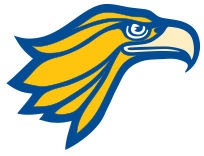|
Section: 2600 - Student Services |
Last Review Date: 12/01/2023 |
|
Responsible Area: Vice President for Learning and Student Services |
Effective Date: 12/01/2023 |
|
Policy/policies the procedure is based on: 1046 |
Procedures that may be impacted by revisions: 2602 |
|
Revision History: New 12/01/2023 |
|
1.0 Scope
This procedure applies to all Northland Pioneer College (NPC) educational programs and activities regardless of the location, including but not limited to, any academic setting, whether it be on campus, off-campus, online, virtual, or in another remote setting.
This procedure can also be applicable to misconduct which occurs off-campus or online.
NPC will address any charges of academic misconduct to determine whether the conduct occurred within the jurisdiction of this procedure.
Any student found to have committed academic misconduct, as defined in Article 3.1, is subject to disciplinary sanction, as outlined in Article 4.0.
2.0 Purpose
The college offers each of its students the freedom to learn and to enjoy the benefits and rewards of college life. In return, the college expects each student to assume the responsibilities that accompany these freedoms. NPC has adopted the following Student Academic Code of Conduct and discipline.
3.0 Definition
3.1 Academic Misconduct: all acts of misconduct associated with work in any NPC academic setting. Academic misconduct includes, but is not limited to, cheating, plagiarism, and violations of ethical standards set by individual programs and courses.
a. Cheating: includes, but is not limited to, the following:
- Use of any unauthorized assistance in taking quizzes, tests, assessments, or examinations.
- Use of sources beyond those authorized by the faculty member in writing papers, preparing reports, solving problems, or carrying out other assignments or clinical responsibilities.
- The acquisition, without permission, of tests or other academic material belonging to a member of the college faculty or staff.
b. Plagiarism: includes, but is not limited to, the following:
- Use of paraphrase or direct quotation of the published or unpublished work of another person without proper citation or identification of the original author.
- Unacknowledged use of materials prepared by another person or agency engaged in the selling of term papers and/or other academic materials.
- Use of information that is not properly acknowledged or identified as such.
c. Violations of Ethical Standards: includes, but is not limited to, the following:
- Making or sharing audio or video recordings of lectures, office hours, or other similar meetings without the authorization of the instructor.
3.2 Academic Setting: any classroom, on- or off-campus, any practicum, clinical, or laboratory environment, or any other setting that is an extension of the classroom or part of the educational process or curriculum.
3.3 Administrator: a College Official designated by the VPLSS for oversight and administration of violations of the Student Academic Code of Conduct. The Administrator shall be a dean, associate dean, director, or other college official in a similar administrative role.
3.4 College Community: any person who falls into the following groups: student, faculty member, college official or any other person employed by the college. The Administrator shall determine a person's status in a particular situation.
3.5 College Official: any person employed by the college, performing assigned administrative or professional responsibilities pursuant to this code.
3.6 College Premises: includes all land, buildings, facilities, and other property in the possession of or owned, used, or controlled by the college.
3.7 Days: college business days as identified in the college catalog; all timelines may be extended by mutual agreement of involved parties or by the decision of the Instructional Council, based on extenuating circumstances.
3.8 Faculty Member: any person hired by the college to conduct instruction.
3.9 Instructional Council Chair: Faculty Member elected by Instructional Council for Chair duties with oversight of the hearing panel regarding issues of Student Academic Code of Conduct violations.
3.10 Student: any person participating in or attempting to participate in educational programs or activities provided by NPC.
3.11 VPLSS: the Vice President of Learning and Student Services, or other college administrator designated by the President for oversight and administration of both the learning and student services divisions/departments.
4.0 Procedure
4.1 Initial Procedures for Filing and Responding to a Charge of Academic Misconduct
a. Any member of the college community, including the instructor of record for a course, may file charges (by sending an email to the student and copying the VPLSS) for academic misconduct against any student. If someone other than the instructor of record files charges of academic misconduct, those charges must be prepared in writing and directed to the instructor of record for the course in which the alleged academic misconduct occurred. Any charges must be submitted within thirty (30) days of the incident.
b. The instructor of record will determine if the charges have merit and will document how such a determination was reached.
c. The instructor of record may impose one or more of the following sanctions upon any student whom they find to have committed academic misconduct:
- a written warning to the student,
- a lowered score on the graded work that involves academic misconduct,
- a score of zero on any test or graded assignment involving academic misconduct (with or without the opportunity to resubmit the assignment for a grade), or
- referral to a plagiarism “boot camp” or other related discretionary assignments related to the offense.
d. The instructor of record must inform the student of the alleged misconduct and the sanction(s) imposed, in writing, within thirty (30) days of the incident.
e. A copy of the communication described in Article 4.1d) and a report of academic misconduct (in .pdf format) must be submitted to the Administrator and the VPLSS within thirty (30) days of the incident. The report must contain a brief description of the nature of that misconduct, and the sanction(s) imposed or recommended.
4.2 Situations in which a Hearing Panel must be Convened
a. The instructor of record may recommend alternative or additional sanctions which differ from those described in Article 4.1c). Such sanctions may include, but are not limited to
- removal from the course with a failing grade, or
- withdrawal from the course.
If the instructor of record recommends a sanction(s) other than those described in Article 4.1c), then the case must be referred to a Hearing Panel pursuant to Article 4.3.
b. If two (2) or more charges of academic misconduct have previously been filed against the student, or if the student has previously been referred to a Hearing Panel for academic misconduct, then the case must be referred to a Hearing Panel pursuant to Article 4.3.
c. A student may appeal the decision of the instructor of record and request a hearing in front of a Hearing Panel. The request for a hearing must be made in writing to the Administrator within five (5) days after the student is notified of the sanction to be imposed by the instructor of record. If a student requests a hearing, then the case must be referred to a Hearing Panel pursuant to Article 4.3.
4.3 Hearings
a. If a hearing is required as outlined in Article 4.2, the Chair of the Instructional Council shall convene a Hearing Panel.
b. The Hearing Panel will consist of three (3) members, including the Chair of the Instructional Council or designee. The composition of a Hearing Panel will be determined by the Chair of the Instructional Council.
c. The Chair of the Hearing Panel shall be the Chair of Instructional Council or designee.
d. All charges shall be presented to the accused student and the Chair of Instructional Council or designee in written form. Previous charges of academic conduct will not be reopened or reinvestigated, though previous academic misconduct may be considered.
e. A time shall be set for a hearing, not fewer than five (5) or more than fifteen (15) days after the request for a hearing.
f. Maximum time limits for scheduling of hearing may be extended at the discretion of the Chair of the Hearing Panel.
g. Should the Hearing Panel determine that charges have merit, the Hearing Panel will recommend to the Administrator the nature of the sanction to be imposed on the student. The Hearing Panel’s recommendations may take the severity and intent of the violation, as well as past offenses, into account.
h. The Hearing Panel may recommend that the sanction(s) imposed by the instructor of record is(are) upheld, may recommend that the sanction(s) imposed by the instructor of record be reversed, and/or may impose additional sanction(s) upon a finding that a student has violated the Student Academic Code of Conduct.
i. All sanction(s) shall be determined and imposed by the Administrator based upon the findings and conclusions of the Hearing Panel. The Administrator will consider the recommendations of the Hearing Panel, but will not be bound by its recommendations or findings. The Administrator will forward their final decision and the report of the Hearing Panel to the accused student in writing within five (5) days after receipt of the findings.
j. No student may be found to have violated the Student Academic Code of Conduct solely because the student failed to appear before the Administrator, a designee, or Hearing Panel. In all cases, the evidence and support of the charges shall be presented and considered.
4.4 Appeals
a. A student may appeal the decision of the VPLSS to the VPLSS in writing within five (5) days. The VPLSS will review all related documentation and the rationale for the decisions of the instructor of record, the Hearing Panel, and the Administrator. The VPLSS will have final authority to uphold the recommendations of the instructor of record or the Hearing Panel, to impose additional or reduced sanctions, or to dismiss the charges and reverse the sanction(s) imposed by the instructor of record.
b. The VPLSS will notify the student of their decision by certified U.S. mail within five (5) days. The decision of the VPLSS shall be final, without further right of appeal.




